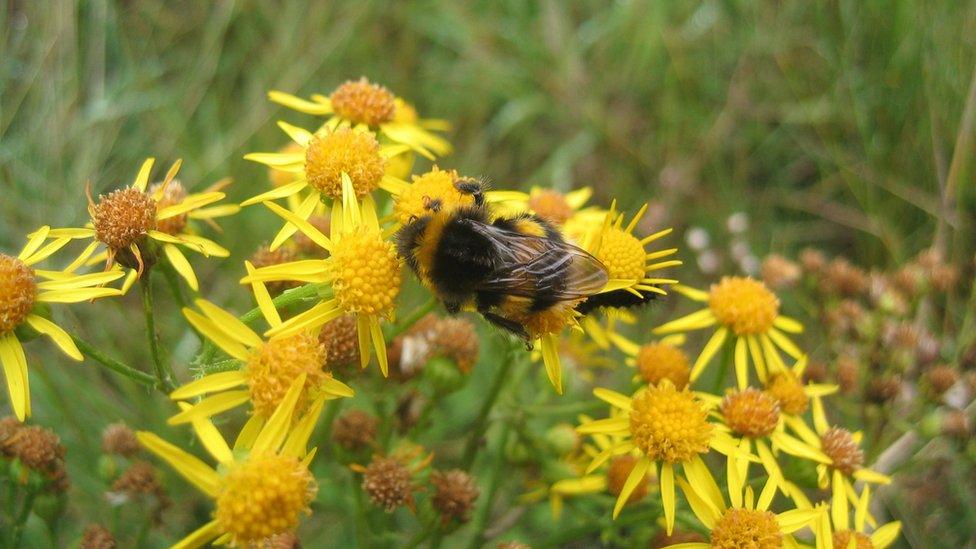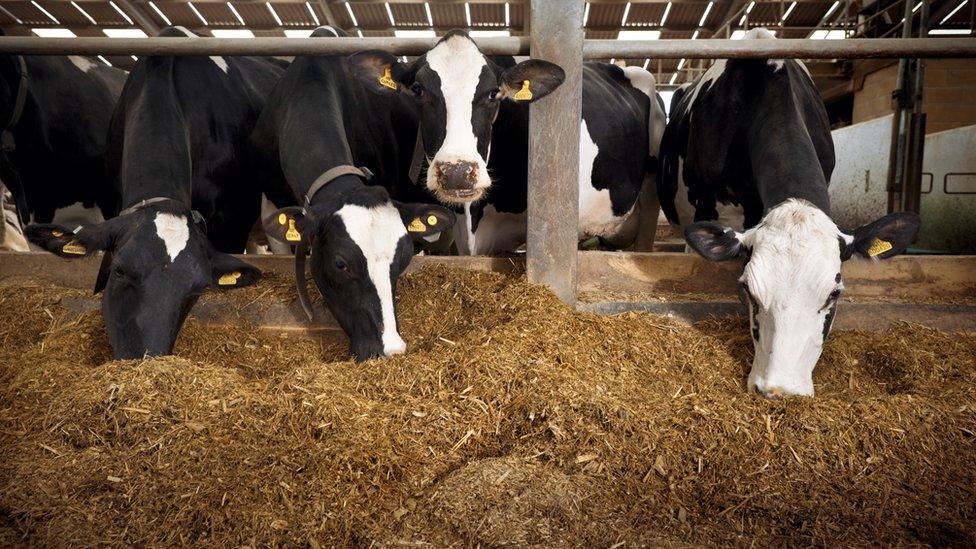Study suggests UK environment would be 'vulnerable' after Brexit
- Published

According to the report, Brexit would leave Britain's environment vulnerable
A report has suggested that a UK departure from the EU would leave Britain's environment "in a more vulnerable and uncertain position."
The study has been prepared by the Institute for European Environmental Policy, external (IEEP).
According to the analysis, membership has had "a significant positive impact" on the environment.
But pro-Brexit campaigners dismissed the report as "complete tosh".
Green benefits
The report says that EU rules have led to a substantial decline in most industrial sources of air and water pollution, a fall in greenhouse gas emissions and the rapid recent growth of renewable energy.
It also credits European policies with bringing about a major increase in recycling rates, along with the establishment of a system for the review of the safety of chemicals.
Leaving Europe entirely would mean that future UK governments could make widespread changes to levels of environmental protection.
"The risks of withdrawing from the EU are significant for nature," says the report.
The Birds and Habitats Directives, external - policies that are the backbone of conservation in the EU and both of which have generated significant improvement for species and habitats - would no longer apply.
Instead, the UK government would be at liberty to change this legislation.
Judging by the UK government's responses to a range of environmental proposals from the European Commission in recent years, it seems more likely that the current government and possibly its successors would opt for a "less ambitious approach than that adopted by the EU".
It cites the example of the debate over the expansion of Heathrow airport: "With no requirement to implement EU law, the approval of these kinds of developments could leave populations at risk of increased exposure in the future."
The report argues that the UK would be excluded from decision-making on EU law and this would be "an unequivocal drawback of departure".
Separating UK, EU and international environmental law, built up over four decades, "would be a considerable challenge and a source of significant uncertainty".
Membership downsides
The report also says that there are drawbacks to remaining within Europe.
It can take a long time to get agreements and it does not always produce clear policy: for example, the EU definition of "waste", which can be interpreted in many different ways.
It says that the Common Agricultural Policy, external has been responsible for the mass industrialisation of agriculture.
The relatively recent "greening" elements of the Common Agricultural Policy - designed to support practices beneficial to the climate and the environment - are overly bureaucratic and some farmers and NGOs question whether they will have any effect.

The report points out the Common Agricultural Policy has often been detrimental to nature
The report also argues that the Common Fisheries Policy has been complicated and controversial and has failed to effectively protect the marine environment.
But former Environment Secretary Owen Paterson dismissed the principal conclusion of the report as "complete tosh".
"It's not true that leaving the EU would harm the environment," he said.
"We would do a much better job if we were outside. We would be able to interpret the legislation - such as the Bern Convention (on the Conservation of European and Wildlife Habitats) to our own flora and fauna, while also being an active participant in other bodies."
The UK's leading conservation bodies - WWF, the RSPB and the Wildlife Trusts are calling for clarity from both the "in" and "out" camps to say what they will do for the environment.
WWF-UK's Director of Advocacy Trevor Hutchings said, "Not everything that comes from Europe has been good for the natural world, but on balance membership of the EU has delivered benefits for our environment that would be hard to replicate in the event of the UK leaving."
Commenting on the IEEP report, Friends of the Earth campaigner Sam Lowe said:
"This welcome report by the IEEP is yet further evidence that the UK's environmental interests are better served inside the EU. It is not possible to address the challenges of the future - such as climate change and the destruction of the natural world - alone. We should be working together, not pulling apart."
Follow Claire on Twitter @BBCMarshall, external.